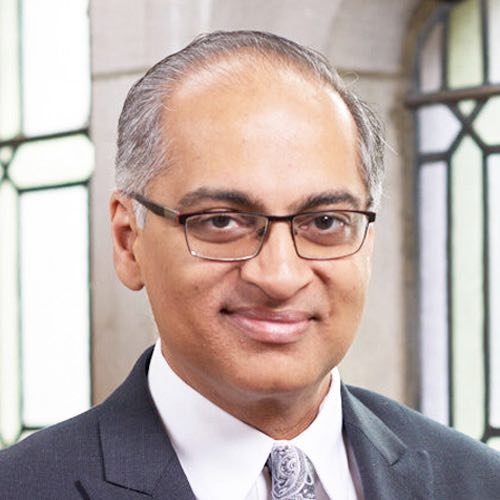The following sermon was delivered at the diocesan We Together conference, which took place in Nanaimo on Sept. 30–Oct. 1. You can watch this sermon and the key note speeches from the conference on the diocesan website.
Now, let me begin with a bit of a warning, a little truth in advertising. This may be among the weirdest sermons you have ever heard. In fact, you might well wonder if it is a sermon at all. You might even say, “This sure sounds like a lecture to me.” Well, what did you expect? I have been a professor for 24 years; I’ve been a priest for just under three months. So, sue me.
I begin with a question: Where is God? Where is God located? Does God have an address? Is the question even a good one? For Christians, truth be told, the question is a strange and uncomfortable one. For a host of reasons, we Christians prefer the question, “When is God?” The when question is easier for us. We can point to the God of Exodus, God made flesh in Jesus, and the God who is yet to come. For Christian imagination, God is a God of time and history but not place. That is why the where question is trickier. Why have Christians been so bad about thinking about God and place? A huge question but let me offer a partial starter answer.
About four centuries ago, elite Western European Christians began to think of nature as mechanism and not organism. The whole world was imagined to be an intricately structured machine — every part working together in precise mathematical harmony. A whole host of figures were responsible for inaugurating us into this way of imagining the world. Galileo, René Descartes and Sir Isaac Newton among others. Now, I am well aware that the mere mention of these figures is likely to generate post high school PTSD in this room full of people who are inclined toward the humanities, we folks for whom the mere mention of the word “calculus” can cause us to break out into a cold sweat. But bear with me. I promise that there will be no mathematical equations in this lecture, I mean sermon.
The remarkable intellectual powers of these figures cannot be exaggerated. But what they are known for — especially when taken together — is that they have bequeathed to us a way of seeing the world as tightly ordered mechanism rather than living organism. Their work in mathematics and natural science generated enormous capacities for prediction and control. Newton’s brilliant work on force and gravity gave human beings unprecedented control over the natural world, and this control played a decisive role in shaping the modern world.
What they gave to us was a way of imagining reality as akin to a billiard ball table. Reality is made up of particles that are like billiard balls. Each stands independent of the other and acts on the other from the outside. Everything in the universe operates by strictly deterministic efficient causation. Descartes and Newton made their contributions in the 17th century, and by the early 19th century, William Paley was characterizing the universe as akin to a watch or a clock. His argument for the existence of God is probably familiar to you even if you haven’t heard his name. It goes like this.
Paley asks us to imagine the following scenario. Suppose you are out walking in the woods, and you come across a watch lying on the ground — imagine for a moment that you don’t know what a watch is — and pick it up and consider its precise design and the intricacy of its operations; you would soon conclude that someone must have manufactured it. From the existence and design of the watch, you would infer the existence of a watchmaker, a designer. Paley argued that the same argument must be made about the world, which is, after all, far more complex than a watch. Hence, there must be a watchmaker God, a God who made this machine-like world.
Now, let me ask you a foolish sounding question. Where is the watchmaker relative to the watch? Is the watchmaker inside the watch? Well, the watchmaker’s genius might be found in the watch, but not the watchmaker’s presence. The watchmaker is not in the watch. The watchmaker gets the watch going but then, here’s the catch: the watchmaker becomes surplus to requirements. If the watch is well made, it can run indefinitely on its own steam. Given the divine genius, likewise, the world too can run on its own steam indefinitely. God is at the beginning making the watch-like world and initiating the world’s operations, but God is no longer needed to keep the world going. And, most importantly, God is not in the universe God has created. So, we’ve answered the where question: God is outside the world God has made.
Is it any wonder then that it is precisely during this historical epoch in the West that God goes missing, that God goes on an extended sabbatical and is rarely if ever heard from again? The minute we begin to imagine nature as stripped of the sacred, that is the very minute that the West begins to lose track of God. Now, I don’t want to place all the blame for God’s disappearance on Descartes and especially Newton. History is never so neat, but their work did serve to underwrite the modern western worldview. The philosopher Akeel Bilgrami describes that worldview concisely as follows: “an exiled and distant God ruling over a brute and material and inert universe.” An exiled and distant God ruling over a brute and material and inert universe — what a telling phrase! And, while Newton cannot bear all the blame for this view of the world, my friend Akeel Bilgrami reminds us that, “Newton, in his Opticks had called nature and matter “stupid.”
What is the legacy of Newton and his successors? Well, Bilgrami puts it this way: “The Royal Society’s Newtonian ideologues insisted, the universe was set and kept in motion by a push from an external and providential God, not a God that was immanent in the world, sacralizing it from within and providing for an inner source of dynamism responsible for motion.”
Now, how and why did this way of viewing the world catch on? Who stood to gain from seeing the world this way? Again, Bilgrami helps us to understand this. Once the world was stripped of any properties that might be considered sacred or supernatural, then what was left could be reduced to mere natural resources. As Bilgrami puts it, “as a result of stripping nature of such properties, it could now be stripped without qualm for extraction and gain as well, since it lacked any sacral constraints on such extraction.” Here again is Bilgrami:
“…worldly alliances were very self-consciously forged between scientific organizations, commercial interests, and the latitudinarian Anglican establishment. Newton and Boyle along with Samuel Clarke, Richard Bentley, and others constructed, through fora such as the Boyle lectures at the Royal Society, an explicit agenda that articulated a systematic carte blanche for extractive economies involving deforestation, mining, and the setting up of plantation agriculture, what we today call “agribusiness.” …the systematic adoption of enclosures and these other forms of extraction entrenched itself in this period, when the declaration that one may now take with impunity from nature’s bounty was deliberately fortified in these worldly alliances of commercial interests with scientific bodies and the Protestant establishment….”
Our Anglican predecessors stood on the side of these scientific and commercial interests. Not all, mind you. The story of Anglicanism as Bishop Anna reminded us yesterday is complex, messy and never straightforward. Now, if you were paying attention to the dates I just mentioned — the 17th–19th centuries, you will have surely noticed that they overlap with the dates that Bishop Anna mentioned. The dates of the emergence of the modern scientific world view that reduced nature to nothing but natural resources perfectly overlap with the period of colonial contact, violence against First Nations and extraction.
A people who had come to see nature as a well-ordered machine encountered a people who regarded nature as a vital living organism infused with the Great Spirit.
A people who believed that human beings had no innate and organic relationship with land encountered a people who held that human beings cannot be separated from the land, that people, land and animals live in intimate and inseparable relation.
A people who only recently had begun to take shared land, the commons, and turn them into private property encountered a people who believe that the land cannot be owned, a people who insisted that we belong to the land and not the other way around.
A people who worshipped an exiled and distant God ruling over a brute and material and inert universe met a people who worshipped an immanent and all-pervasive God present in every tree, every rock and every bush. Is it any wonder then that colonizers came to regard the people of this land as pagan, primitive, magical and superstitious?
Sadly, the story of institutional Anglicanism is a story of collaborating with the material interests who stood to gain by reducing sacred nature to nothing more than natural resources. In recent centuries, Anglicans have become a people who no longer know how to dream dreams or have visions. Lacking the power to dream, we are unable to see and to confess with Jacob, “Surely the Lord is in this place, and I was not aware of it.”
The Lord is in this place, and we are not aware of it. So, we clearcut and develop and invest in monocrop industrial agriculture and degrade the soils and poison the waters and overfish the oceans. Why? Because we have forgotten that “Surely the Lord is in this place, and we are not aware of it.”
Caught up in the myth of whiteness and of cultural and racial superiority, we did not listen to our Indigenous siblings when they tried to tell us, “Listen, dear friends, the Lord is in this place, and you are not aware of it!”
Now, smoke from forest fires shrouds our skies, flood waters from hurricanes ravage our coasts, our young people plead for us to leave them a habitable world for their children and their children’s children; their voices cry out to us, “Surely the Lord is in this place, and you are not aware of it.”
Whether we call it “reverential naturalism,” or presence of God in whom we live and move and have our being or the hallowed presence of the Great Spirit, some among us are beginning to dream and to see, “Surely the Lord is in this place, and we were not aware of it.”
Is it too late for us to dream again, to see angels ascending and descending on this very land? Have we Christians lost the capacity to see nature, trees and all our animal companions as full of divine presence? Have we forgotten that the Lord is not only in this place but also in us? Will Christians live and die in a great cosmic loneliness, thinking ourselves to be the only spirit-filled creatures in an otherwise God-forsaken machine-like universe?
I do not believe it is too late for us! As Bishop Anna told us, God is doing a new thing! As Rachel Brown told us, there are now countless many in BC who may not speak of the Lord but who can testify to the presence of the sacred in nature. And, oh how long Jillian Harris’s people have been telling us that we have lost our way, that we have forgotten our own traditions, that we have forgotten how to dream like Jacob did. They have been telling us, “Surely the Lord is in this place, and we were not aware of it!” The future of BC, indeed our planetary future, depends on whether we will listen.
Holy One, whose presence and power pervades all things, teach us once more to dream like your servant Jacob. Teach us once more to recognize your presence in this very place! Amen!




